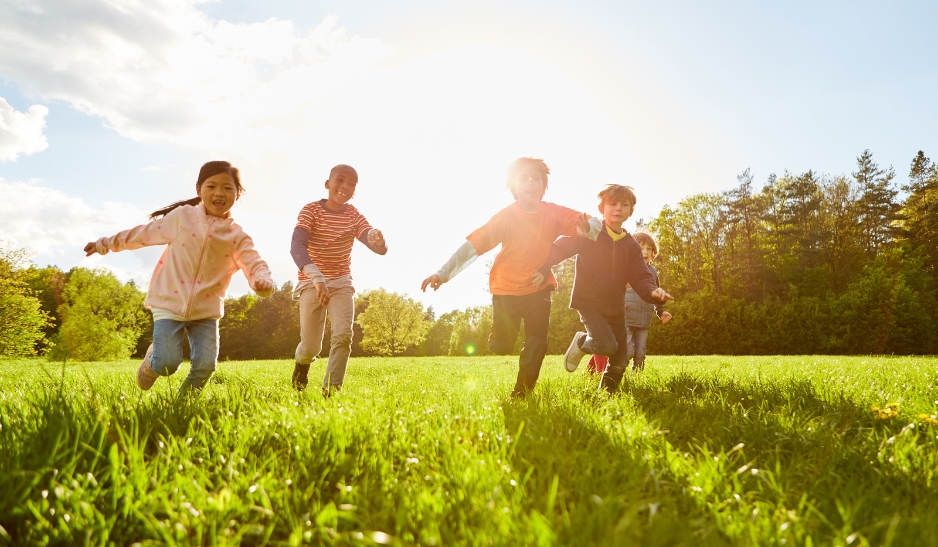Setting and Achieving Meaningful Recreational Goals in Park Programs

Setting and Achieving Meaningful Recreational Goals in Park Programs
Recreational goals in park programs play an invaluable role in fostering a child's growth. This symbiosis of play, learning, and development shapes the child's cognitive, emotional, social, and physical competencies, providing an enriching environment for holistic development. Whether it's learning a new sport, discovering the joys of painting, or working together to build a treehouse, these recreational pursuits are more than just fun and games. They are unique opportunities that nurture essential life skills and values, forming the building blocks of a child's character and future capabilities.
But these valuable experiences don't just happen. They are the product of careful planning and goal-setting, aimed at creating an engaging and challenging environment for children. By setting and pursuing meaningful goals in these recreational activities, we provide children with a clear sense of direction and purpose. This goal-oriented approach motivates children to push their boundaries, take on new challenges, and celebrate their accomplishments, thereby fostering a robust sense of self-efficacy and resilience. It's a journey that's as enjoyable as it is beneficial, filled with opportunities for children to learn, grow, and thrive in their unique ways.
Understanding Child Development and the Role of Recreation
Child development is a multidimensional process involving changes in various domains of a child's life. It includes cognitive, emotional, social, and physical capacities. Cognitive development entails how children think, explore, and figure things out. It's about the child's developing ability to process information, reason, remember, and solve problems. Emotional development involves the ability to recognize, express, and manage emotions, while social development revolves around interactions with others, forming relationships, and learning social norms and values.
In all these areas, recreational activities play an instrumental role. By introducing children to diverse experiences and challenges, recreational activities in park programs create a fertile ground for holistic development. For instance, a puzzle game can enhance cognitive skills by encouraging children to think strategically. Team sports can boost social development by teaching children about teamwork, cooperation, and negotiation. Similarly, expressive activities like painting or dramatic play can foster emotional development by allowing children to express their feelings creatively.
Physical development, another crucial domain, refers to the growth of the body and development of motor skills. Again, recreational activities come into play. Sports and physical games help children develop their motor skills, coordination, and physical fitness. Activities like running, climbing, or playing ball games promote stamina, strength, and flexibility. This physical aspect, coupled with the cognitive, emotional, and social aspects, underscores the importance of recreational activities in park programs for comprehensive child development.
The Importance of Setting Goals in Recreational Activities
Goal-setting offers a transformative edge to children's recreational activities. It instills a sense of purpose and direction, making the recreational process more meaningful and engaging. When children set goals for their recreational activities, they embark on a journey of self-discovery and personal growth. They are challenged to step out of their comfort zones, tap into their inner resources, and stretch their capabilities. This fosters a resilient mindset that is not only crucial for achieving their recreational goals but also beneficial in other aspects of life.
Moreover, goal-setting helps improve children's problem-solving abilities. When they have a clear goal in sight, children are motivated to find ways to reach it. This often involves overcoming obstacles, learning new skills, and making adjustments along the way, which collectively hone their problem-solving skills. Through goal setting, children also experience a sense of accomplishment and self-efficacy. Achieving a set goal, no matter how small, boosts their confidence and encourages them to take on bigger challenges. Over time, this cycle of setting and achieving goals can have a profound impact on a child's self-esteem and overall development.

How to Set Meaningful Recreational Goals in Park Programs
Setting meaningful recreational goals involves being clear, realistic, and engaging. One of the most effective strategies for this is the SMART goals framework, a tool that helps define goals that are Specific, Measurable, Achievable, Relevant, and Time-bound. When setting goals with children, it's essential to ensure that the goals are clear and well-defined.
-
Specific
The goal should be clear. For example, "I want to learn to play basketball" is more specific than "I want to play a sport." -
Measurable
The goal should have quantifiable criteria. For instance, "I want to learn to dribble the basketball ten times without dropping it." -
Achievable
The goal should be within the child's capabilities while also pushing them to improve. -
Relevant
The goal should be something the child is genuinely interested in. -
Time-bound
There should be a clear timeframe. For instance, "I want to achieve my dribbling goal within two months."
With these principles in mind, the SMART goals framework can be a powerful tool to set meaningful and engaging recreational goals in park programs.
Tools and Techniques to Monitor Progress and Achieve Goals
Implementing tools and techniques to track progress helps children visualize their achievements and fosters self-motivation. One such tool is a goal-setting worksheet, where children can document their goals, action steps, and progress. These worksheets serve as a constant reminder of what they aim to achieve and the steps they need to take to get there. Progress charts offer another tangible way to measure progress. By tracking their progress visually, children can clearly see how far they've come and what's left to reach their goal.
In addition to these tools, there are several techniques that can support children in achieving their goals. Regular check-ins, for instance, provide opportunities for reflection and adjustment. During these sessions, children can discuss their progress, identify any challenges they're facing, and brainstorm solutions. Positive reinforcement is another crucial technique that aids in maintaining enthusiasm and persistence. Celebrating small victories and providing encouragement when children make progress towards their goals can boost their confidence and motivation, propelling them towards success.
Overcoming Challenges and Embracing Failure
Like any journey, goal setting and achievement can come with potential obstacles. It's crucial to teach children that these challenges are not roadblocks, but stepping stones to success. When faced with difficulties, children should be encouraged to remain persistent and look for alternative solutions. This approach fosters problem-solving skills and resilience, invaluable traits that extend far beyond the recreational context.
In the same vein, children should be taught to embrace failure as part of the learning process. Failure can be disappointing, but it also offers rich learning opportunities. When children do not meet a goal, it's an opportunity to analyze what went wrong, learn from the experience, and try again with newfound knowledge and perspective. By reframing failure as an opportunity for growth, we can help children develop a positive attitude towards setbacks and cultivate a growth mindset that will serve them well in all areas of life.
Conclusion
Setting and achieving meaningful recreational goals in park programs play a crucial role in child development. The intersection of play and learning provides a nurturing environment for children to grow and thrive. By harnessing the power of goal-setting in recreational activities, we pave the way for well-rounded development, arming the younger generation with skills and experiences that will serve them well into the future.
When it comes to organizing these enriching experiences effectively, consider partnering with Curacubby. With our emphasis on education, Curacubby offers tools that can enhance your program management, allowing you to focus on what truly matters: creating an environment where children can confidently pursue their goals and flourish.









